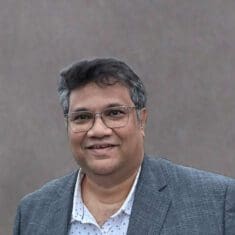Masters of Science in Materials Science and Engineering
The materials science and engineering department offers a variety of educational and research opportunities for graduate study including degree programs in materials science and engineering, ceramic engineering, and metallurgical engineering. The department offers the following degrees: M.S. and Ph.D. in materials science and engineering, M.S. and Ph.D. in ceramic engineering, and M.S. and Ph.D. in metallurgical engineering. Further information regarding these degree programs may be found below and under the individual degree programs within this catalog.
The requirement for entry into one of these programs includes a baccalaureate degree in materials science or engineering, ceramic engineering or science, glass science or technology, or metallurgical science or engineering. A baccalaureate degree in physics, chemistry, chemical engineering, or related discipline may also be acceptable.
In the areas of glass, ceramic, and biomaterials, the department carries out research in electronic ceramics, high temperature materials, structural ceramics, composites, ceramic processing, laser glasses, and nuclear waste encapsulation glasses. Fundamental and applied interests include structure and its relation to the properties of ceramics and glasses; defect chemistry, thermochemistry and phase equilibria; electrical, dielectric, optical, thermal and mechanical properties of ceramics; ceramic-ceramic, ceramic-metal, and ceramic-polymer composites; compositional effects on the optical properties and chemical corrosion of glass; solid oxide fuel cells; high temperature superconducting ceramics; ferroelectric ceramics; glasses and ceramics for biomedical applications such as drug delivery and medical implants; and processing, forming, and microstructure control of structural and functional ceramics. The department has extensive facilities for the synthesis, forming, and fabrication of ceramics and glasses, as well as for the detailed characterization of the properties of ceramics. A mechanical testing laboratory is available for characterizing mechanical properties under controlled temperature and atmospheric conditions.
In the areas of metallurgical science and engineering, the department carries out research in physical and mechanical metallurgy, extractive metallurgy, metals casting, joining and forming, and manufacturing metallurgy. Principal research interests include steel manufacturing and processing, additive manufacturing of advanced metallic materials, electro-metallurgical processes, computation methods for materials synthesis and processing, radiation effects on materials, environmental aspects of metal manufacturing, and treatment of metals industry wastes. Capabilities for research in these areas include: (1) a department foundry with facilities for green sand casting, centrifugal casting, lost foam casting, and permanent mold casting, and metal joining, (2) controlled hot rolling and quenching, (3) multiple advanced additive manufacturing systems, (4) physical testing of metals under controlled temperature and atmospheric conditions, and (5) pilot scale electrowinning, electrorefining and solvent extraction facilities.
In the area of biomaterials the department carries out research in the synthesis and characterization of novel biomaterials, the design and fabrication of scaffolds for tissue engineering of biological tissues, interactions of biomaterials with living systems, and tissue-engineered restoration of biological tissues.
The department also has a strong affiliation with the Materials Research Center (MRC) at Missouri S&T, which houses major instrumentation for materials characterization. Faculty members within the MSE department are either senior research investigators or research investigators in this nationally recognized center. Facilities available within the MRC to support graduate research include electron microscopy, thermal analysis, Auger Electron Spectroscopy, FIB (Focused Ion Beam) x-ray diffraction, together with grazing incidence for film analysis, among others. Extensive capabilities for materials coatings, preparation and analysis are also available.
